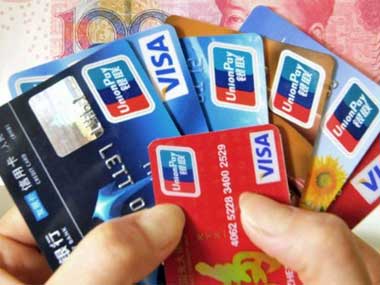New Delhi: In the backdrop of massive increase in currency in circulation, the Special Investigation Team (SIT) on black money has suggested that the government should make debit, credit card or account payee cheque mandatory for booking domestic and international flight tickets, purchase of jewellery, paying bills at bars, clubs, hotels, restaurants and petrol pumps. The recommendation has a twin objective of curbing black money in the country and to promote digital payment. Digital transaction volumes have gone up since demonetisation in 2016. But the SIT feels that these steps will improve transparency and bring down the average cash circulation in the financial system along with making the individual more accountable to tax authorities. “It must be made mandatory for all the petrol pumps, hotels, restaurants, bars and clubs to accept settlement of their bills only through debit, credit card or account payee cheque and not by cash payments. Very small restaurants, dhabas, roadside stalls may be exempted from this provision. All airline tickets, domestic and international, purchased directly or through travel agent or their sub-agents should be required to be purchased through debit or credit card or account payee cheque and not by cash payment,” SIT is learnt to have told the government. [caption id=“attachment_931859” align=“alignleft” width=“380”] Representational image. AFP[/caption] The SIT is understood to have observed that shops which sell white good articles like jewellery, gold ornaments, furniture, household appliances, motorbikes and scooter should be mandatorily required to accept payments of their sale proceeds through cards or cheques and not by way of cash. The SIT has also recommended that developers, builders, interior designers and decorators, painters and electricians who charge more than Rs 50,000 per transaction per customer should also be required to receive payments for the goods and services supplied only through digital or account payee cheques. The SIT is of the view that such measures, which could be implemented with minor amendments in existing law, will make it possible for the tax authorities to gather information about the amounts spent which would be indicative of the approximate income of such persons. Banks and institutions in India are fully geared to usher in a debit or credit card revolution, consumers have also realised the advantages and benefits of using debit or credit cards. The SIT further observed that in order to make the tax information network more effective and obtrusive, a simple programme can be devised to match the permanent account number (PAN) of each person with all the debit and credit cards issued by different banks as well as the bank accounts. The SIT has also refuted the arguments in certain sections that a large number of people living in semi-urban areas and farmers may not be covered under this mechanism. It is learnt to have said, “Experience reveals that the Kisan Credit Card scheme which has been successfully implemented over the last few years has covered lakhs of farmers in India enabling them to buy agricultural equipment, vehicles and other farm inputs through credit cards. Hence, a person living in urban and semi-urban areas would find it not difficult to pay through debit, credit cards or cheques for the purchase of goods and materials.” The SIT on black money has strongly favored a new regime arguing that in several developing and developed economies, around 90 percent of payments are made through debit, credit cards or electronic transfer of funds which reduces unaccounted cash transactions. It feels the new law in the next five years could substantially reduce the utilisation of cash for purchase of goods and services. Since transaction charges remain a major discouraging point for digital payment users, the SIT is in favor of tweaking the existing policy to ensure that such charges during online payment should be adjusted while filing income tax returns. “There is a tendency to pay minimum and, therefore, to encourage to make payment through debit, credit card for transaction, a policy should be framed so that the said amount shall be reimbursed to the assessee by way of income tax rebate or deduction in payment of tax or banks should be directed not to charge for such facilities or charges should be minimum,” the SIT is learnt to have told the government.
Banks and institutions in India are fully geared to usher in a debit or credit card revolution, consumers have also realised the advantages and benefits of using debit or credit cards.
Advertisement
End of Article


)

)
)
)
)
)
)
)
)



